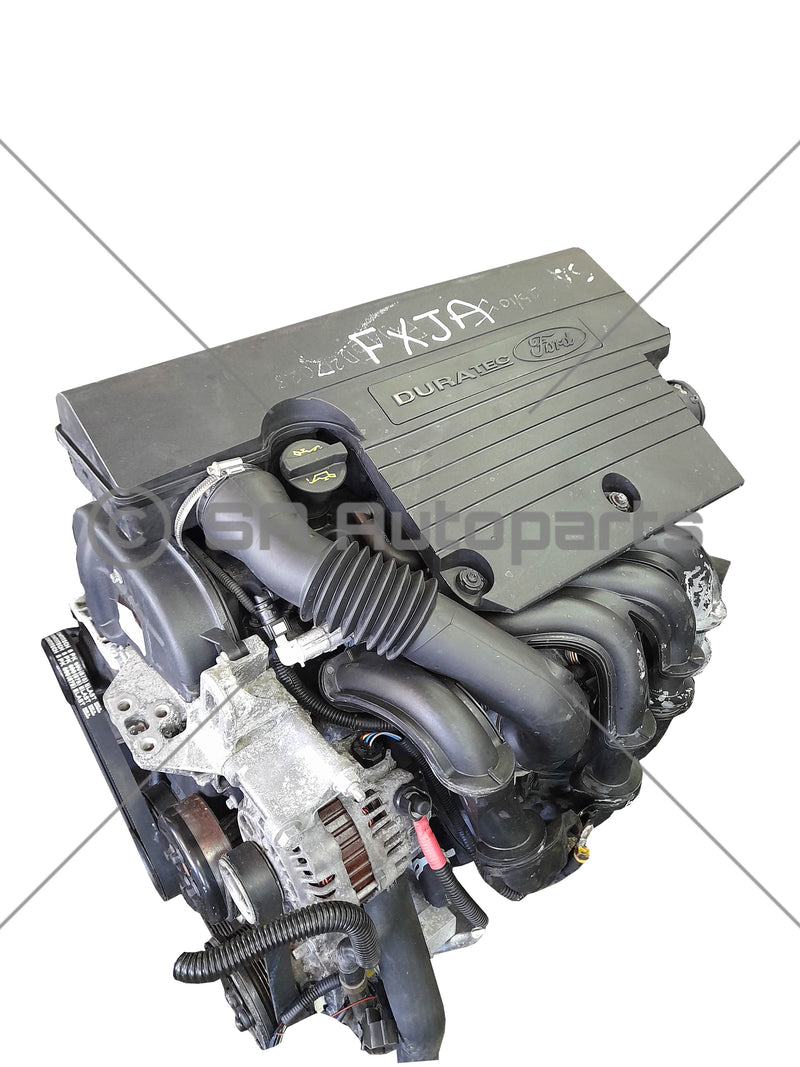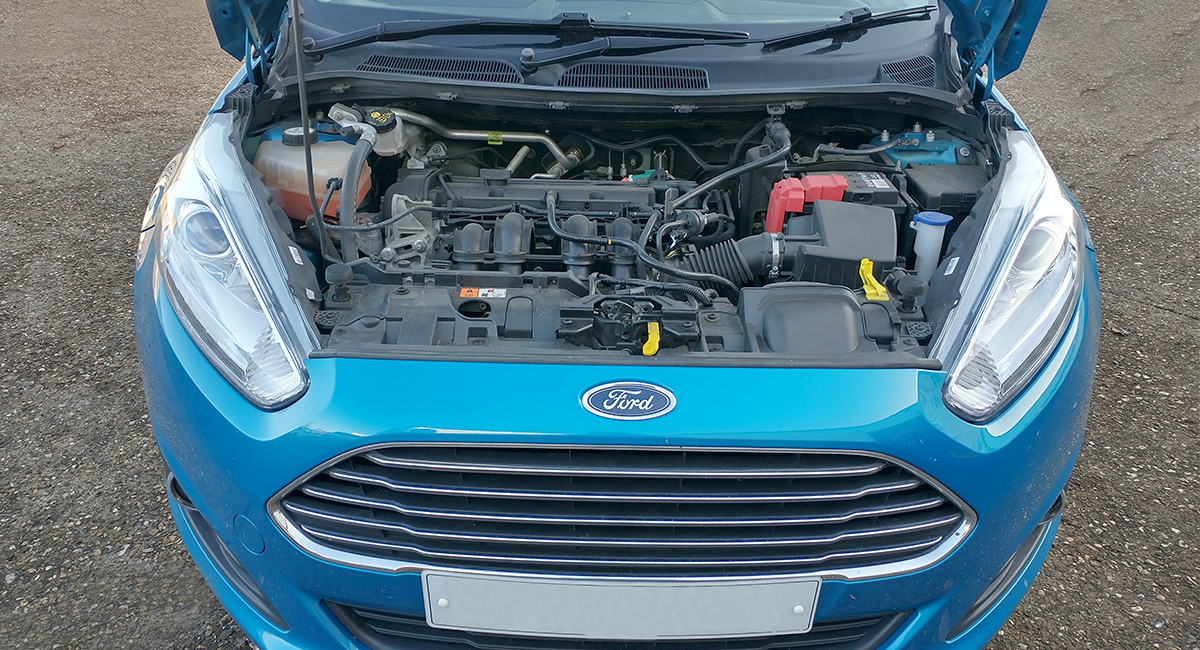The Role of a Quality Ford Fiesta Engine in Vehicle Performance
The Role of a Quality Ford Fiesta Engine in Vehicle Performance
Blog Article
The Future of Engines: Technologies Driving Sustainable Power Solutions
As the auto sector browses the critical shift towards sustainability, the future of engines is significantly specified by groundbreaking technologies. Electric engine advancements, along with appealing growths in hydrogen fuel cells and biofuels, are improving the landscape of power services. The appearance of hybrid systems additionally complicates this evolution, presenting both possibilities and challenges to lower exhausts effectively. Coupled with the combination of man-made knowledge in engine design, these technological strides elevate crucial questions regarding their long-term feasibility and influence on traditional standards. What might this indicate for the industry and consumers alike?
Electric Engine Dope
The development of electrical engine growths represents a crucial change in the vehicle and aerospace markets, driven by the immediate demand for lasting choices to fossil fuels. This transition is characterized by significant innovations in battery modern technology, power electronic devices, and electric motor design, which collectively enhance the effectiveness and performance of electric engines.
Recent advancements have brought about the creation of lighter, much more energy-dense batteries, such as lithium-silicon and solid-state batteries, which guarantee longer ranges and shorter charging times. Additionally, renovations in electric motor performance, such as the use of long-term magnets and progressed cooling systems, enable electrical engines to run efficiently under varying problems. These enhancements not only improve vehicle performance yet also add to a decrease in total power usage.
In addition, the integration of innovative software program formulas has actually enhanced power management in electrical lorries, permitting regenerative stopping and predictive charging techniques. As manufacturers significantly embrace electric propulsion, the aerospace and automotive sectors are witnessing a standard change towards greener innovations. This advancement not just satisfies regulatory demands but likewise lines up with consumer preferences for eco-friendly transport options, solidifying electric engines as a cornerstone of future lasting movement.
Improvements in Biofuels
As the auto and aerospace markets increasingly focus on sustainable energy resources, advancements in biofuels become a corresponding option to electric engines. Biofuels, obtained from organic materials such as crops, waste, and algae, provide a cutting-edge avenue for decreasing greenhouse gas exhausts and reliance on nonrenewable fuel sources.
Current research has actually focused on boosting the effectiveness and sustainability of biofuel manufacturing. Second-generation biofuels utilize non-food feedstocks, minimizing competition with food supply and decreasing environmental impact. Innovations in artificial biology have allowed the design of microbes to create biofuels much more properly, leading to higher yields and reduced manufacturing costs.
In addition, the development of drop-in biofuels permits seamless assimilation right into existing facilities, making it possible for a smoother change for sectors typically depending on nonrenewable fuel sources. ford fiesta engine. These gas can be utilized in existing engines without adjustments, facilitating their adoption throughout numerous sectors
Investments in biofuel innovation, in addition to helpful plans, are important to drive advancement and scalability. As the global area looks for to deal with climate change, biofuels use a pragmatic, immediate service that aligns with the overarching goal of sustainability in transport and aeronautics.
Hydrogen Gas Cell Innovation
An expanding variety of scientists and companies are checking out hydrogen gas cell innovation as a viable choice to traditional source of power in transport and power systems. This technology converts chemical energy from hydrogen right into electrical power with an electrochemical response, with water as the only by-product, making it an eco pleasant alternative.
The core of hydrogen fuel cells is the gas cell pile, where hydrogen molecules are divided into electrons and protons. The circulation of electrons creates electricity, while protons move with a membrane to combine article with oxygen from the air, creating water. This process causes high efficiency and low discharges, placing hydrogen gas cells as an important player in the change to lasting energy.
Significant innovations have actually been made in boosting the resilience and efficiency of fuel cells, click to find out more along with reducing prices through cutting-edge production strategies. Furthermore, the development of hydrogen manufacturing methods, such as electrolysis powered by eco-friendly power sources, boosts the sustainability of the total system. As framework for hydrogen refueling expands and production approaches come to be extra effective, hydrogen gas cell innovation holds terrific promise for decarbonizing various fields, consisting of sturdy transportation and fixed power generation.
Crossbreed Solutions and Their Effect
Hybrid systems stand for a substantial advancement in sustainable engine technology, merging standard internal burning engines with electrical propulsion to optimize energy efficiency and minimize exhausts (ford fiesta engine). This double approach allows cars to make use of both power resources, making it possible for higher versatility in power intake and minimizing reliance on fossil fuels

In addition to ecological benefits, crossbreed systems supply customers a practical change in the direction of fully electric automobiles. They ease variety anxiety by incorporating the benefit of fuel with the advantages of electrical propulsion, making them an appealing alternative for a larger target market. As producers invest in hybrid technology, the advancement of advanced battery systems and lightweight materials continues to boost performance. Overall, crossbreed systems represent an essential action towards attaining sustainable transportation and attending to the urgent requirement for ecologically pleasant power solutions.
The Function of AI in Engine Style
Leveraging sophisticated formulas and artificial intelligence techniques, the automotive sector is increasingly integrating expert system (AI) into engine layout processes. AI boosts the efficiency and efficiency of style by examining vast datasets to identify ideal configurations and performance parameters. This capability permits engineers to replicate different operating conditions and predict engine actions under numerous circumstances, considerably minimizing the time and price connected with conventional prototyping approaches.
Furthermore, AI promotes the growth of innovative products and combustion processes customized for sustainability. By enhancing fuel efficiency and lessening emissions, AI-driven styles straighten with global efforts intended at lowering the carbon impact of automotive engines. Artificial intelligence algorithms can likewise forecast upkeep demands, causing boosted dependability and long life of engine elements.
Additionally, AI is important in the assimilation of electrification technologies, such as hybrid systems, where it can optimize battery administration and power healing procedures. As the market relocates towards even more lasting power options, the role of AI in engine design comes to be significantly essential, driving innovation and boosting the efficiency of future engines. Ultimately, the collaboration in between AI and engine design declares a brand-new period of smarter, cleaner, and extra efficient auto modern technologies.

Verdict
To conclude, the future of engines is being formed by a convergence of cutting-edge technologies that prioritize sustainability. Electric engine developments, biofuel advancements, hydrogen fuel cells, and hybrid systems collectively add to a significant reduction in exhausts and ecological impact. Furthermore, the combination of expert system in engine design enhances efficiency and performance. These transformative options underscore a commitment to developing a cleaner, much more lasting vehicle landscape, inevitably profiting both society and the atmosphere.
Electric engine innovations, along with encouraging advancements in hydrogen gas cells and biofuels, are reshaping the landscape of power services. Furthermore, improvements in electric motor effectiveness, such as the use of irreversible magnets and advanced cooling systems, enable electric engines to operate properly under differing conditions. By optimizing gas performance and lessening exhausts, AI-driven designs align with global efforts intended at lowering the carbon footprint of automobile engines. As the market relocates towards more sustainable power solutions, the role of AI in engine design comes to be increasingly crucial, driving technology and enhancing the efficiency of future engines. Electric engine developments, biofuel growths, hydrogen gas cells, and crossbreed systems collectively add to a significant reduction in emissions and environmental effect.
Report this page